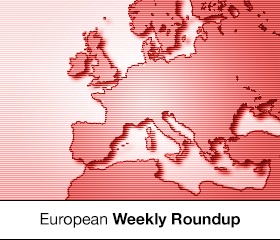Google Unveils Accelerated Mobile Pages; EU Annuls 'Safe Harbour' Agreement With the US
by Sonja Kroll on 9th Oct 2015 in News


ExchangeWire rounds up some of the biggest stories in the European digital advertising space. In this week’s edition: Google speeds up mobile pages; EU Court of Justice rules on Safe Harbour; and Apple waves through first ad blocker that works in apps.
Google's accelerated mobile pages go live
A new approach by Google? The internet giant has just unveiled its project 'Accelerated Mobile Pages' – which is open source and therefore does not generate any revenue for Google. Instead, Google is pushing for speedier loading times on mobile devices by providing a new format that is compatible with multiple platforms and supported by various big-name publishers, such as the BBC, The New York Times, El Pais, and The Financial Times.
AMP does what it says on the tin: The project aims to provide a platform that will instantly load mobile-optimised content from publishers, or in Google's own words "an initiative to improve the mobile web and enhance the distribution ecosystem". It relies on HTML and existing web technology, allowing publishers to host their own content while speeding up the loading times to split seconds.
As altruistic as it looks, speedier loading times will not just benefit the users. In a world where consumers increasingly surf on mobile devices, users expect the same fast loading times that they are already used to on their desktops. But long loading times on mobile devices are often caused by ads – one of Google's mainstay revenue sources.
Not many of the new speedy ads have been seen yet, but various formats appear to be possible with AMP, among them carousel features which could advertise a range of articles from a publisher. It remains to be seen whether Google is going to reserve particular ad formats for publishers who are on board with AMP.
Fatal blow for 'Safe Harbour'
In a much anticipated verdict, the European Court of Justice has declared the Safe Harbour agreement between the US and the EU invalid. Thus, the transfer of European data, such as collected for instance by social media sites like Facebook, may be prevented in the future.
However, the European verdict does not kill the transfer of data outright. The ruling specifies that national regulators will be allowed, in the future, to investigate platforms for potential breaches of national data protection regulations – and suspend them in case of privacy infringements.
While the ruling may be a triumph for privacy-concerned users and watchdogs (and will keep lawyers busy with the drafting of new company data policies) the suspension of the 'Safe Harbour' agreement is set to hit companies that rely on cloud storage in the US, as well as digital marketing companies. "The weakening of the 'Safe Harbour' agreement limits European consumers’ access to valuable digital services and impedes trade and innovation", warns Mike Zaneis, executive vice president of public policy and general counsel at the Interactive Advertising Bureau (IAB), in reaction to the ruling.
Advertisers may be able to breathe easier, though: Through cookie consent, users provide their consent to a company to store their data for a set amount of time.
Apple allows first mobile app ad blocker
Google, Facebook and other digital advertising heavyweights will not be happy about Apple's latest move: The hardware producer has approved the first ad blocker that blocks ads in apps, posing a threat to digital marketing companies.
Until now, ad blockers have only worked on Apple's Safari browser, but the ad block app 'Been Choice' takes ad blocking a step further. Relying on VPN technology, Been reroutes users' internet traffic over their own servers. Ad banners in apps are detected by Been's analytics, removed, and the ad-traffic sent back to the user.
The ad-blocking app does not only put marketers under pressure, but will also hurt app developers who rely on advertising to monetise their apps. “We’re getting into dangerous territory,” comments ExchangeWire's Ciaran O’Kane to the Financial Times. “If app developers can’t make money, there’s going to be a kick back.”
While the ad blocker effectively prevents marketers from advertising and developers from monetising, Been at the same time plans to convert their own service into cash: Rewarding users who allow ads with monthly payments, Been is planning to collect user behaviour data.
Been Choice is not yet available for download in Europe.
Ad BlockingAdvertiserAppleDataDisplayEMEAMobileNorth AmericaPublisher








Follow ExchangeWire